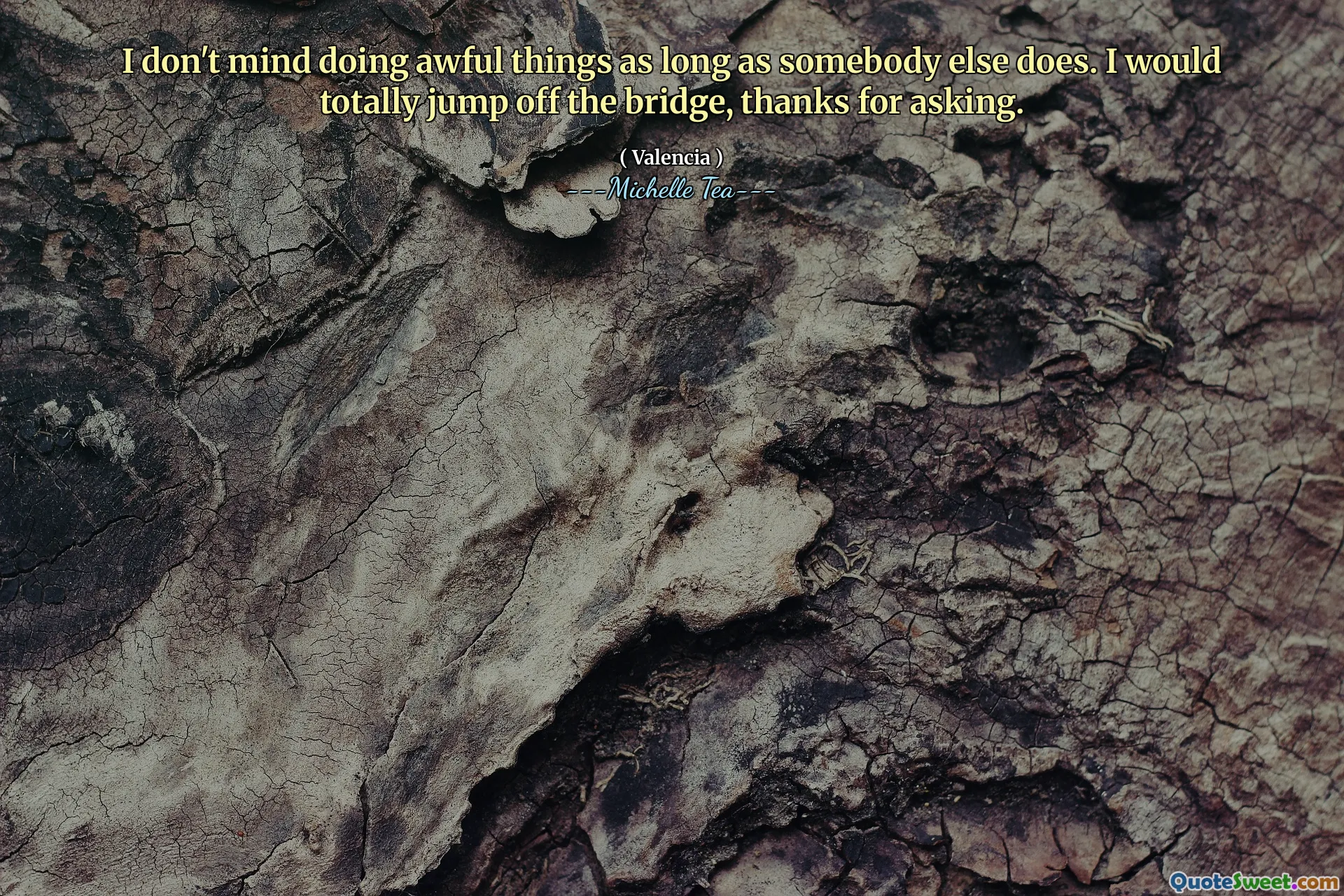
I don't mind doing awful things as long as somebody else does. I would totally jump off the bridge, thanks for asking.
This quote presents a provocative exploration of moral boundaries and individual desires versus social responsibilities. The speaker seems to acknowledge a willingness to engage in morally questionable actions, but crucially, only when it is others who undertake the moral risk. This attitude raises questions about accountability and the collective nature of morality—do we constellate our actions to share responsibility? The image of jumping off a bridge symbolizes a leap into the unknown or dangerous, perhaps metaphorically representing extreme actions or decisions. The remark also hints at a form of detachment or disconnection from the consequences of one’s actions—being okay with chaos or harm as long as it doesn't affect oneself. It can be seen as a commentary on societal tendencies to delegate uncomfortable or 'awful' tasks, such as war, environmental destruction, or unethical decisions, to certain individuals or groups while absolving others of guilt.
This perspective is intriguing as it juxtaposes personal indifference with a darkly humorous undertone. The casual tone masks underlying themes of irresponsibility and moral apathy, which are prevalent in discussions about collective action and ethical boundaries. Beyond humor, this quote invites reflection on the importance of moral integrity and the dangers of moral disengagement. It makes one consider their own stance on morality—is one willing to take action when it benefits others? Or is morality inherently about personal responsibility? The statement provokes a deeper conversation about how societal constructs influence our willingness to act or abstain from certain behaviors.
In a broader sense, it encourages introspection regarding the complex nature of ethical choices and highlights how societal norms and psychological barriers can shape our attitudes toward risky or harmful deeds. It also underscores the importance of empathy and accountability in forging a fairer, more conscious society. Recognizing our role in moral dilemmas, rather than distancing ourselves from them, is crucial for meaningful ethical engagement.






